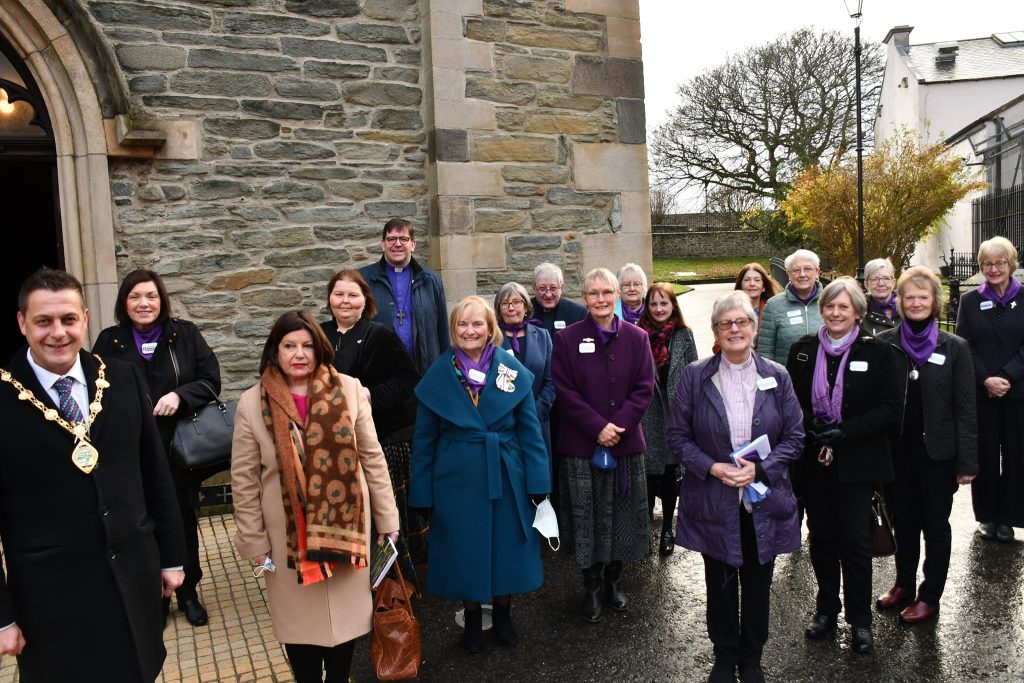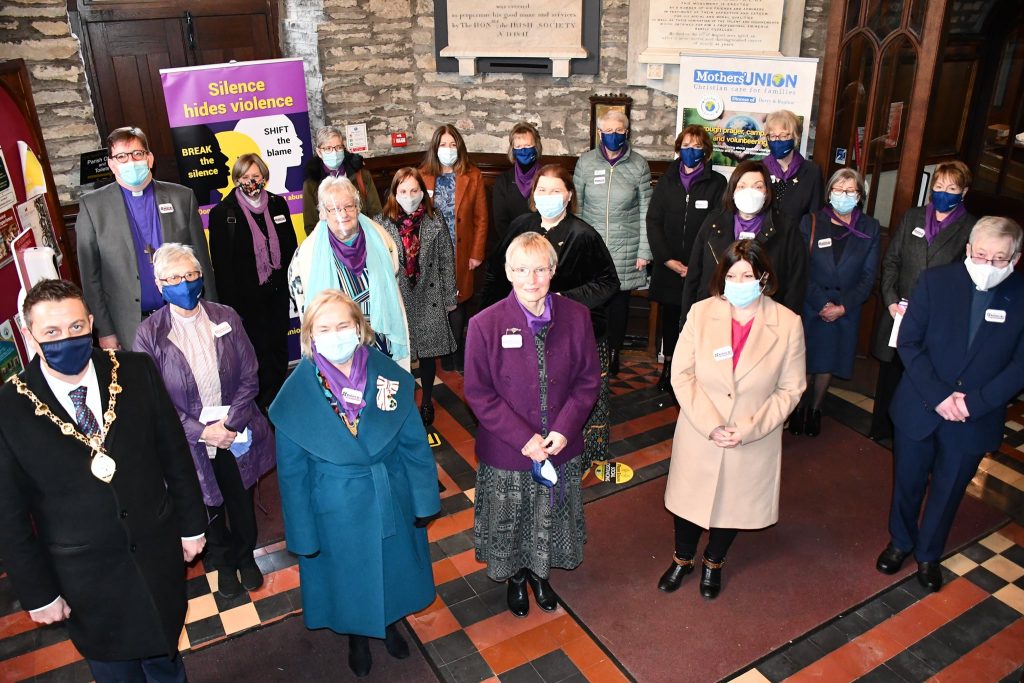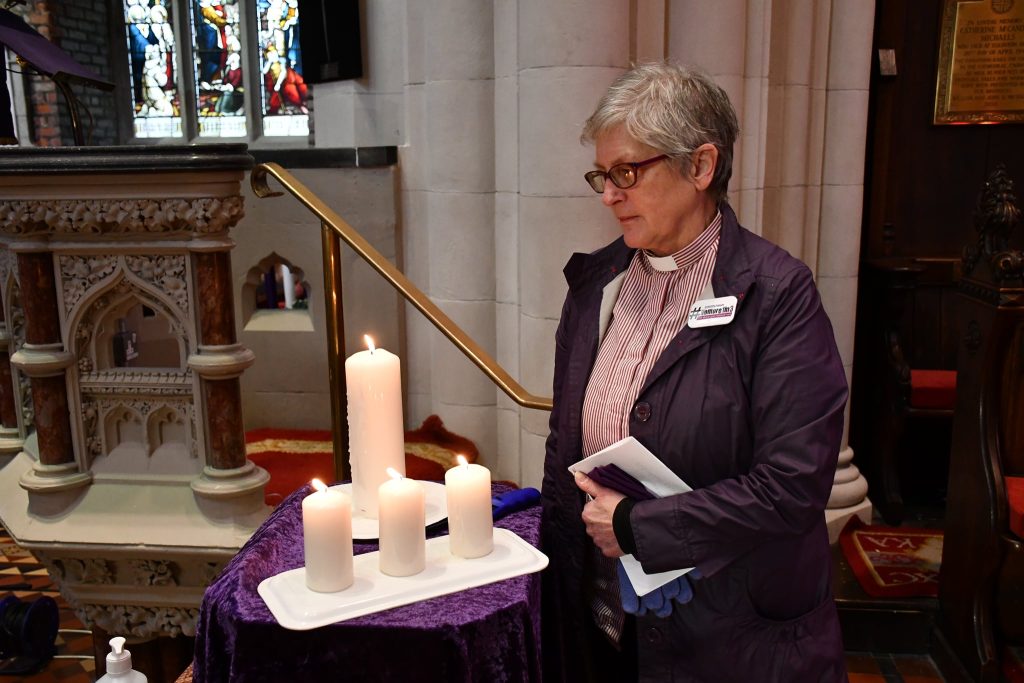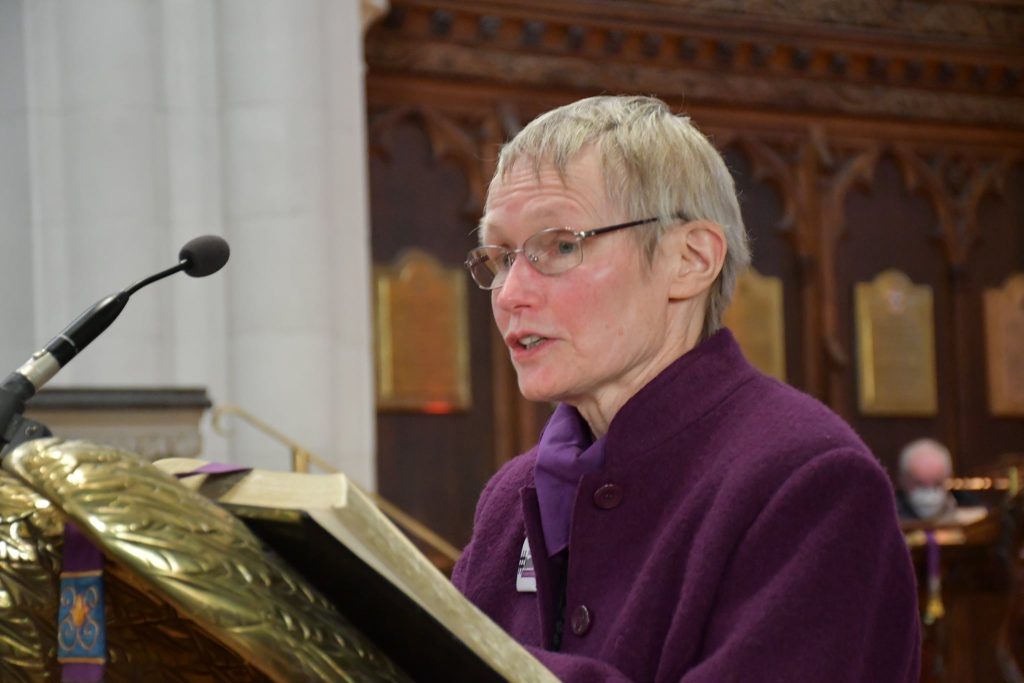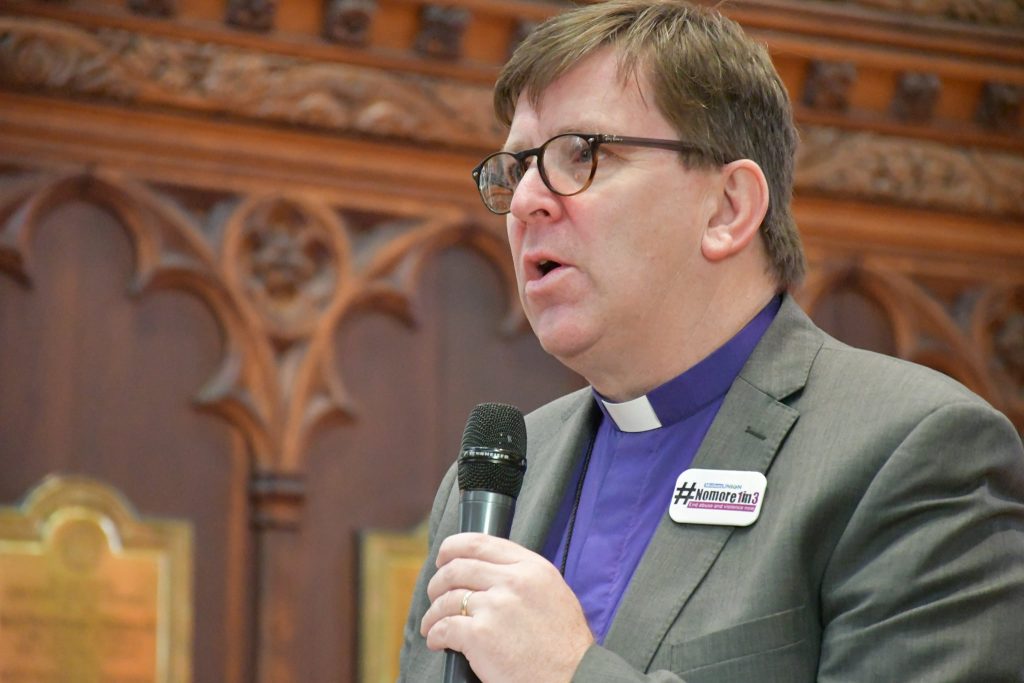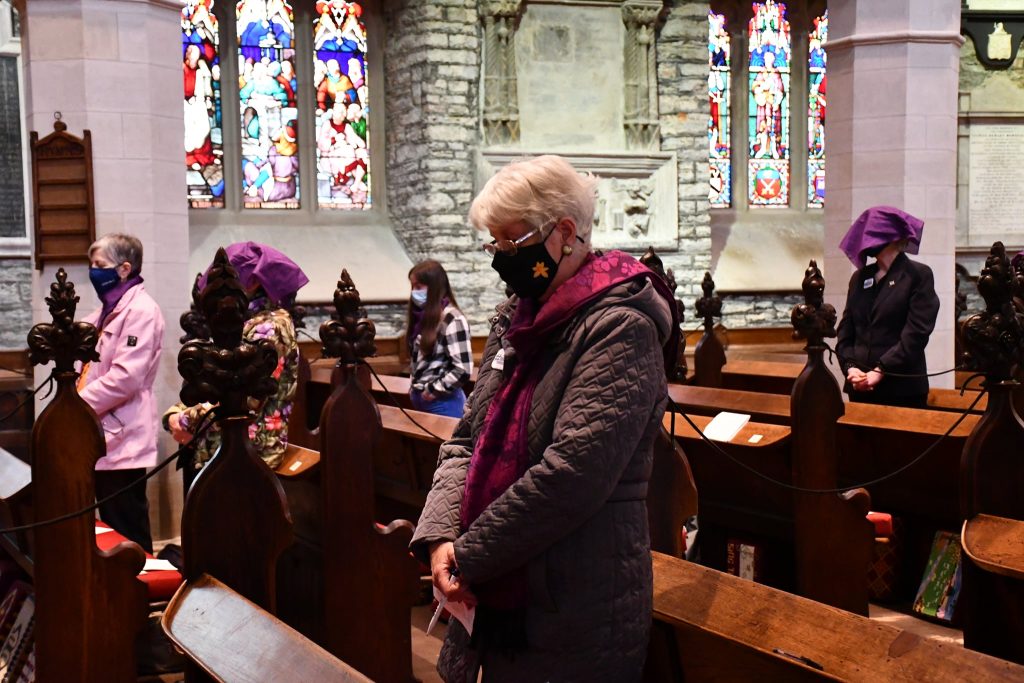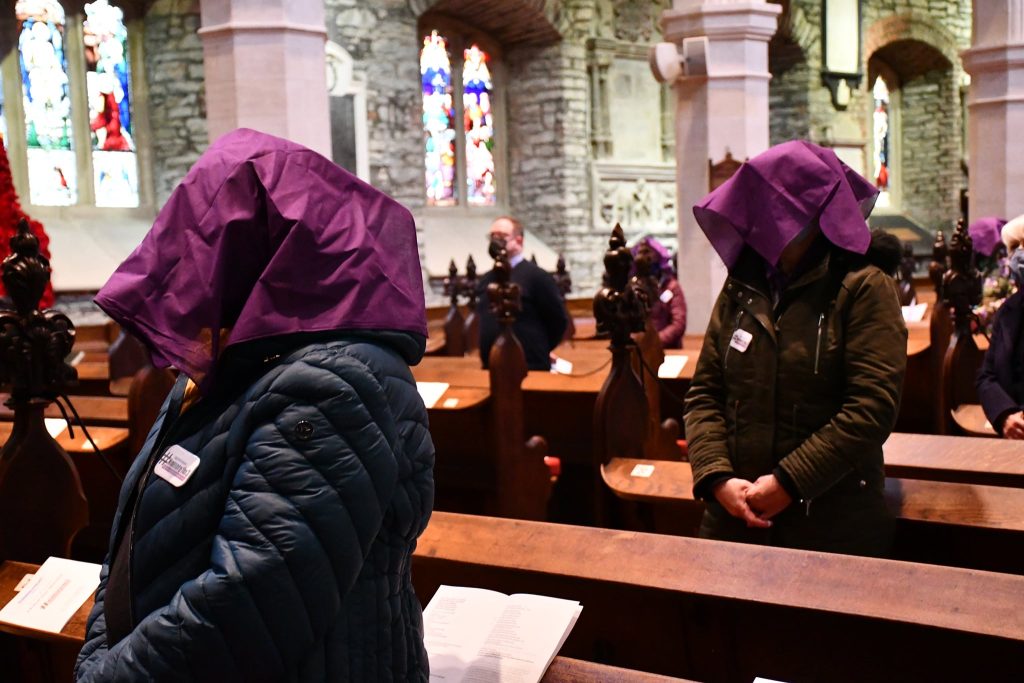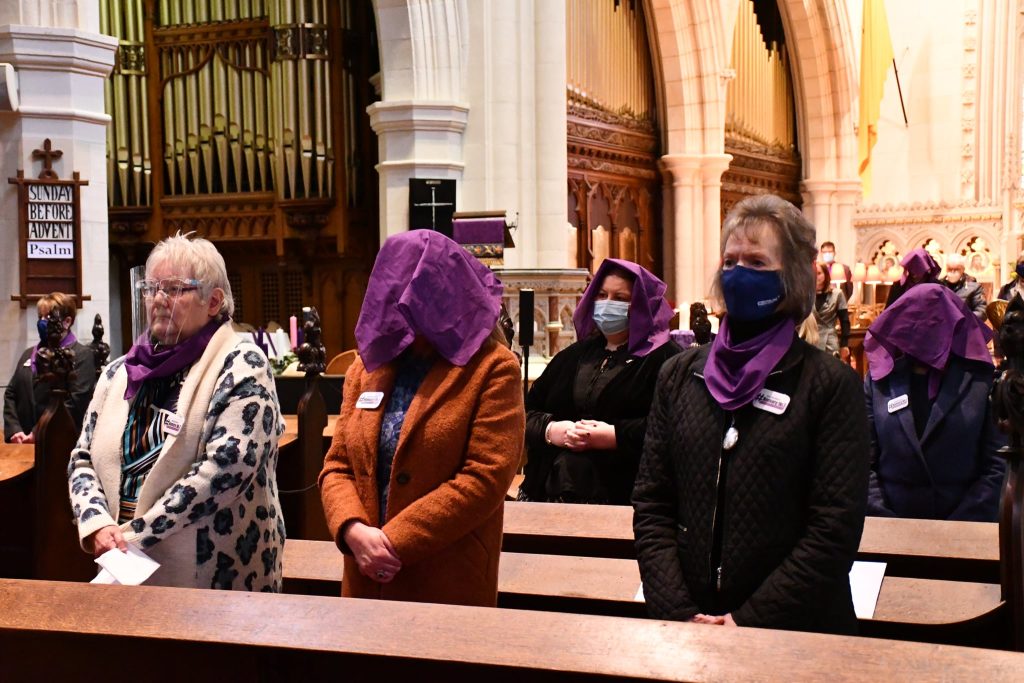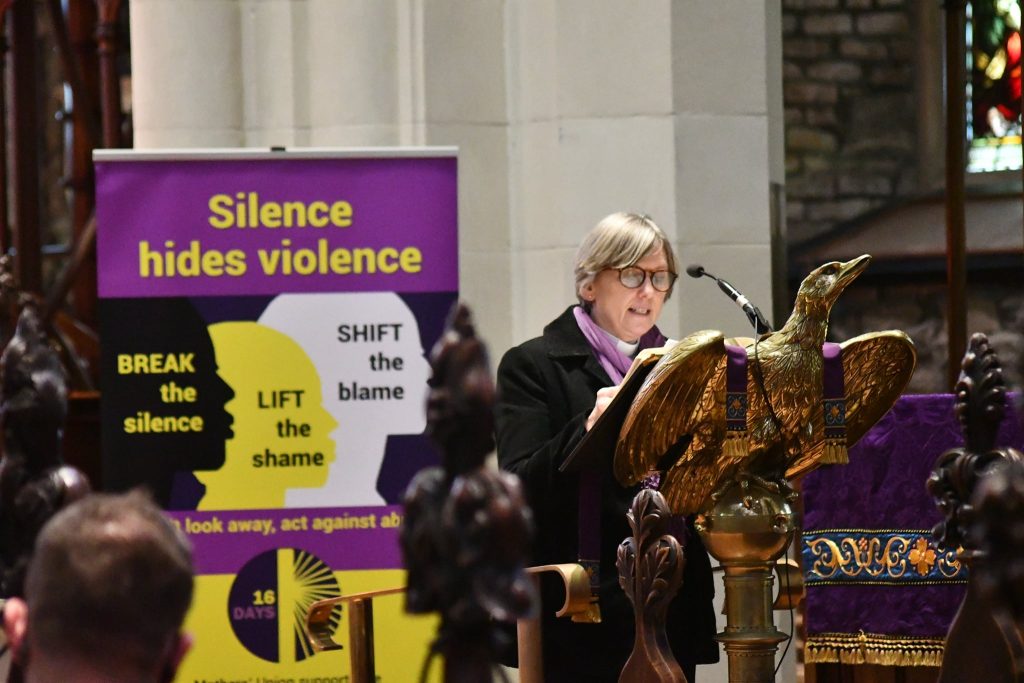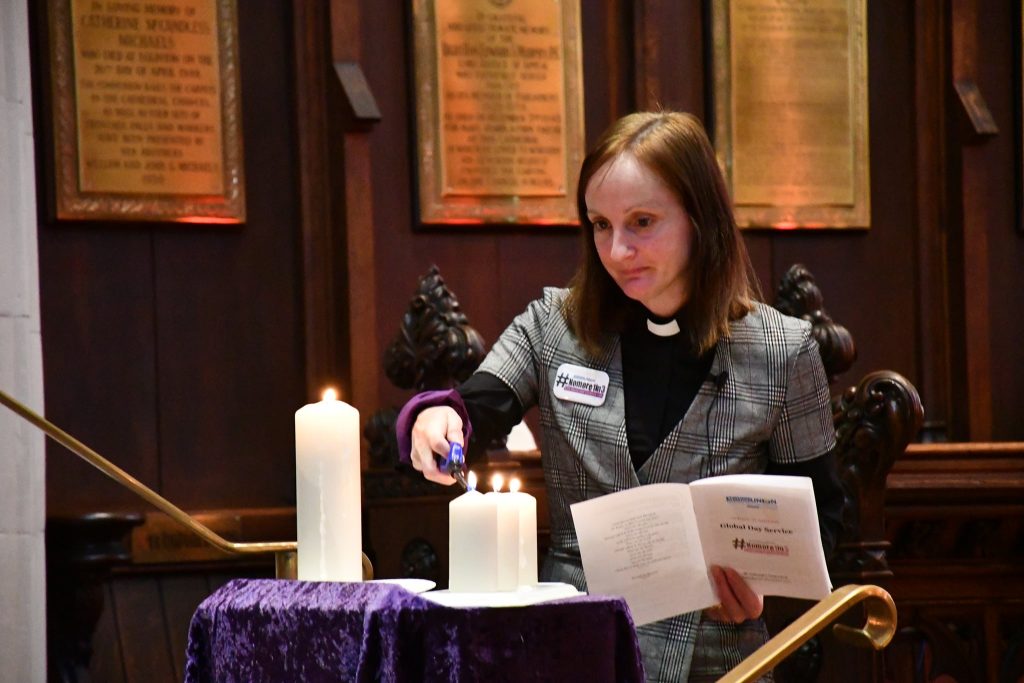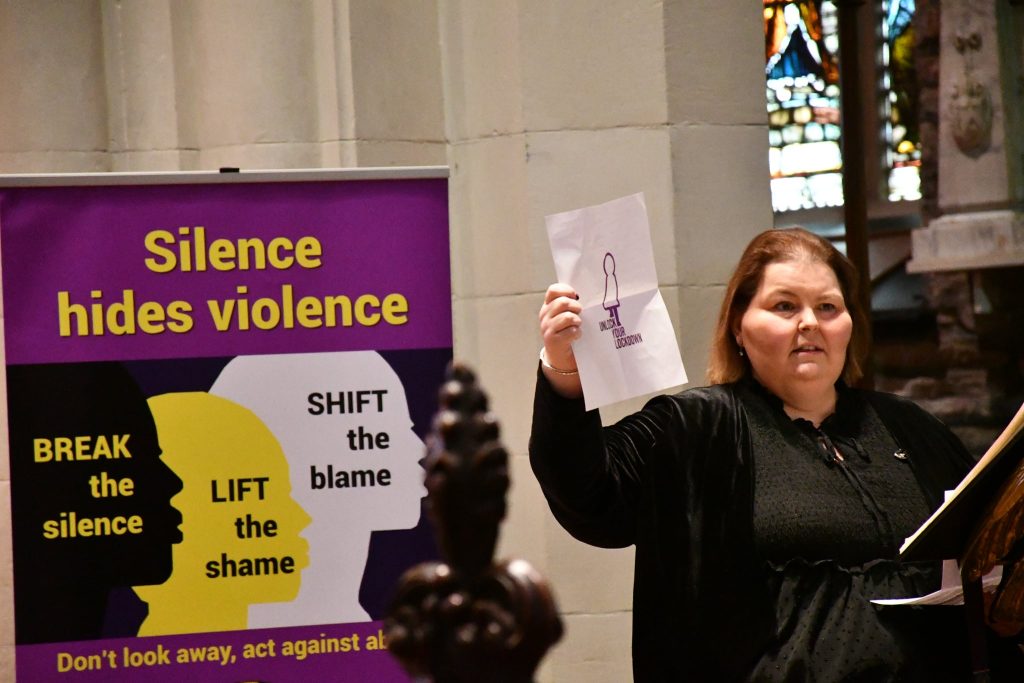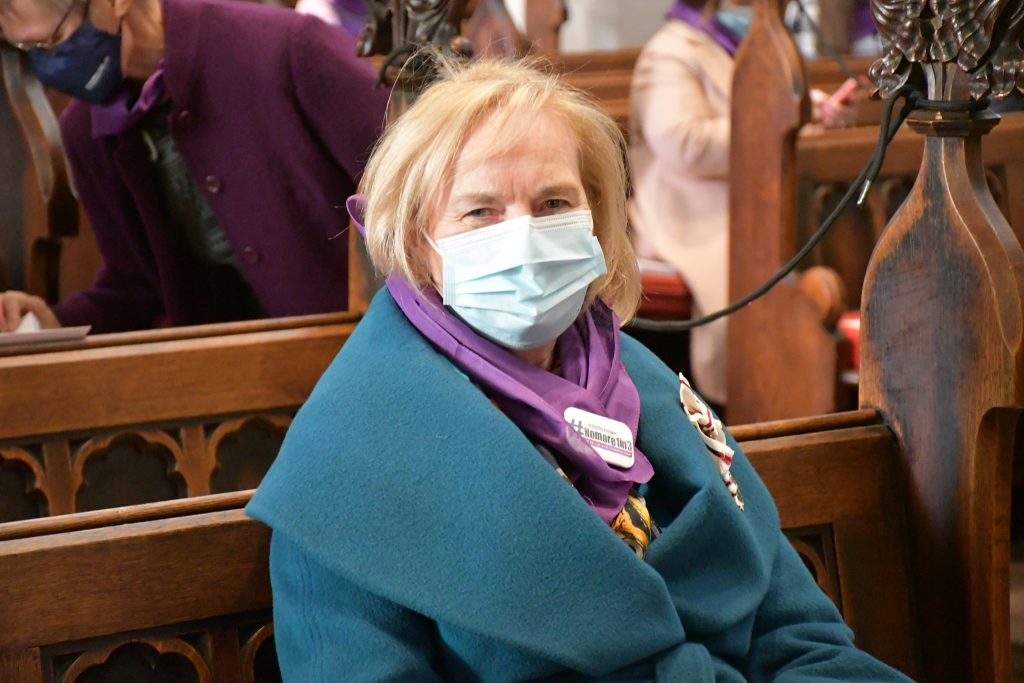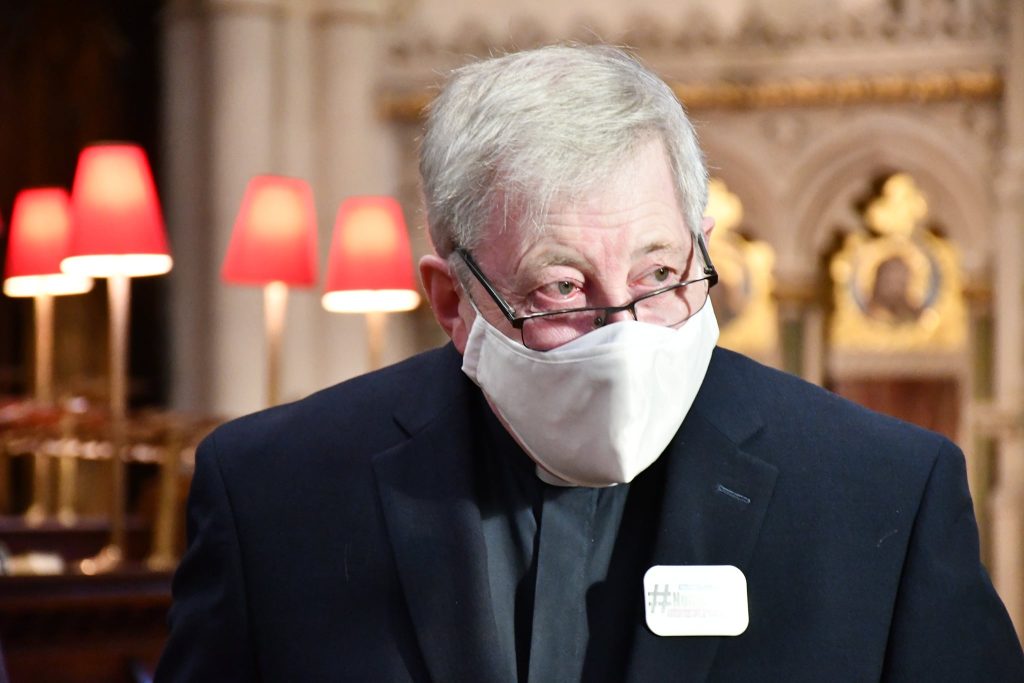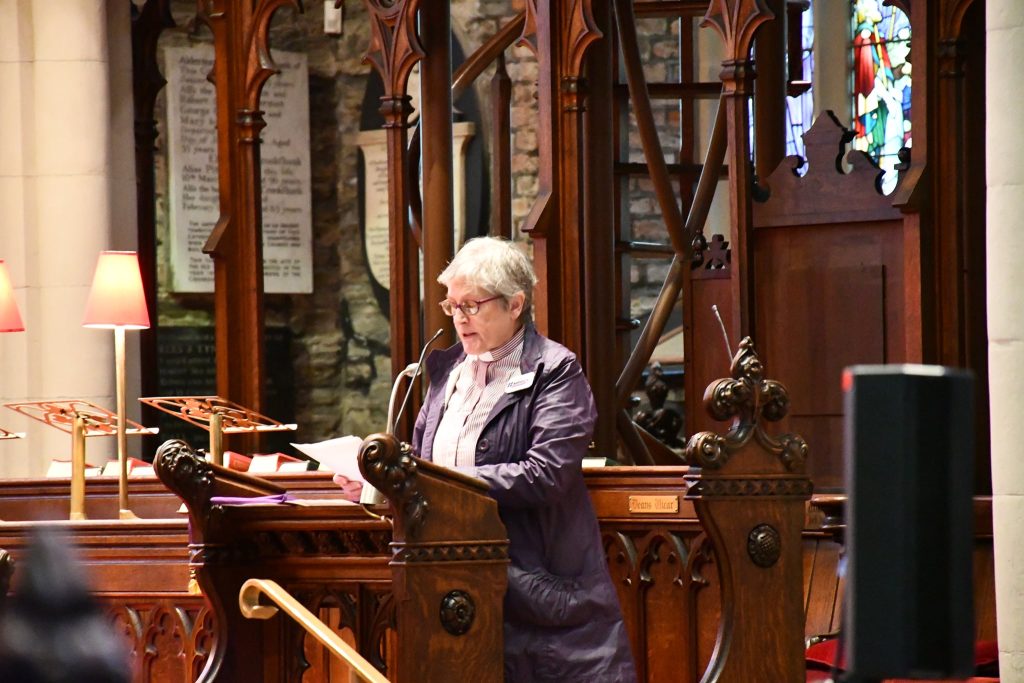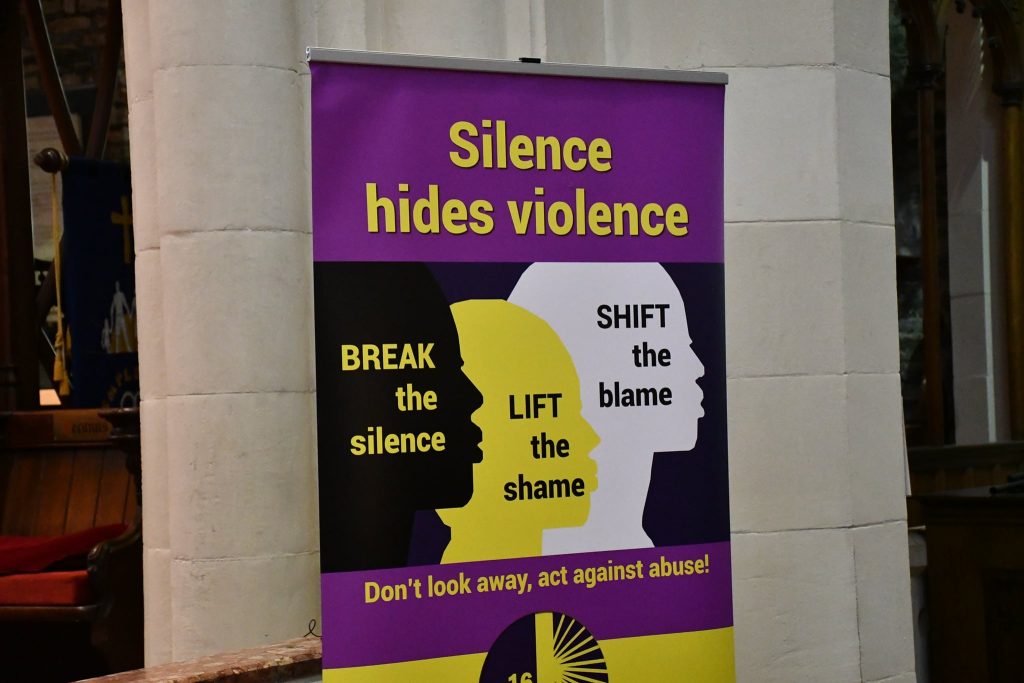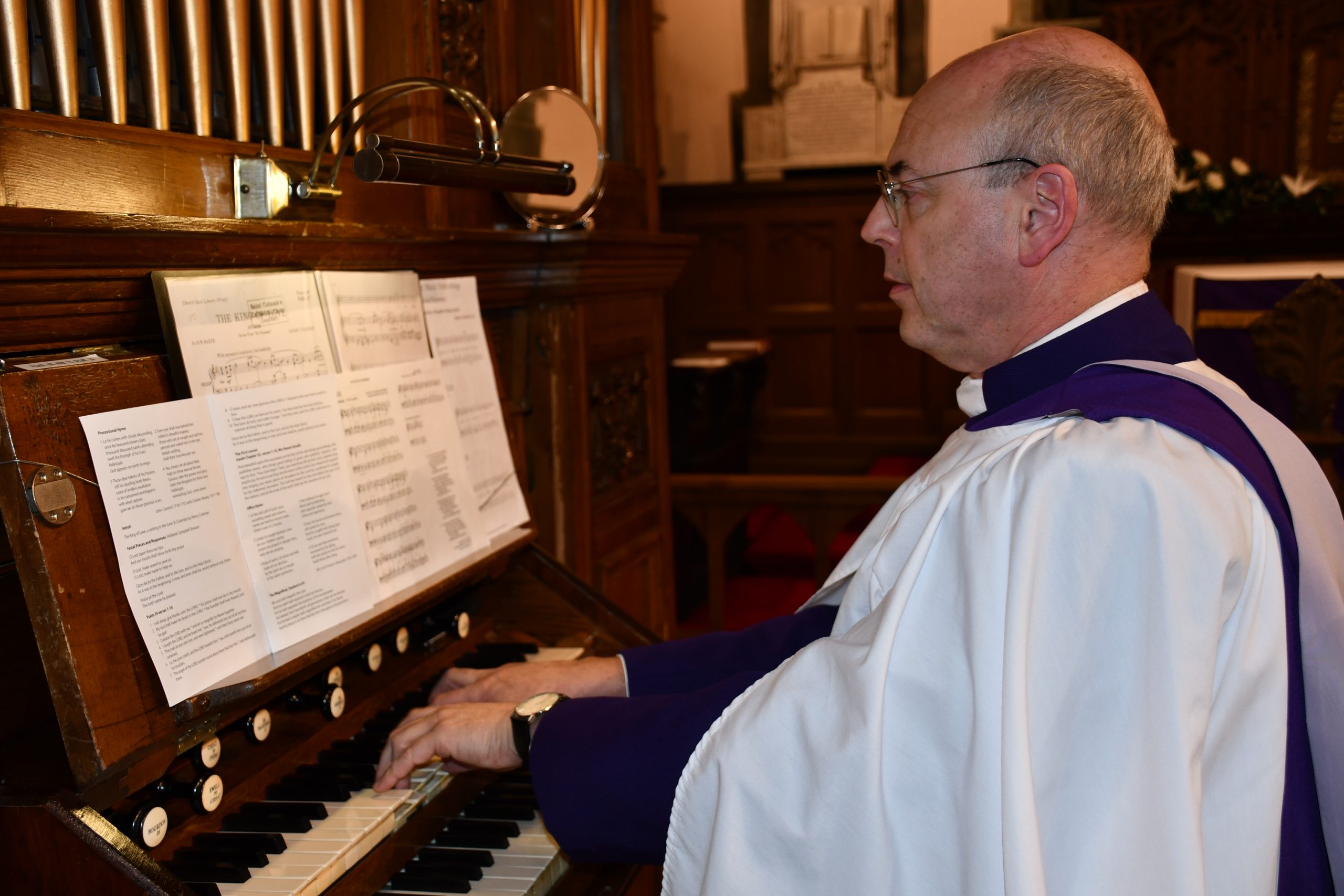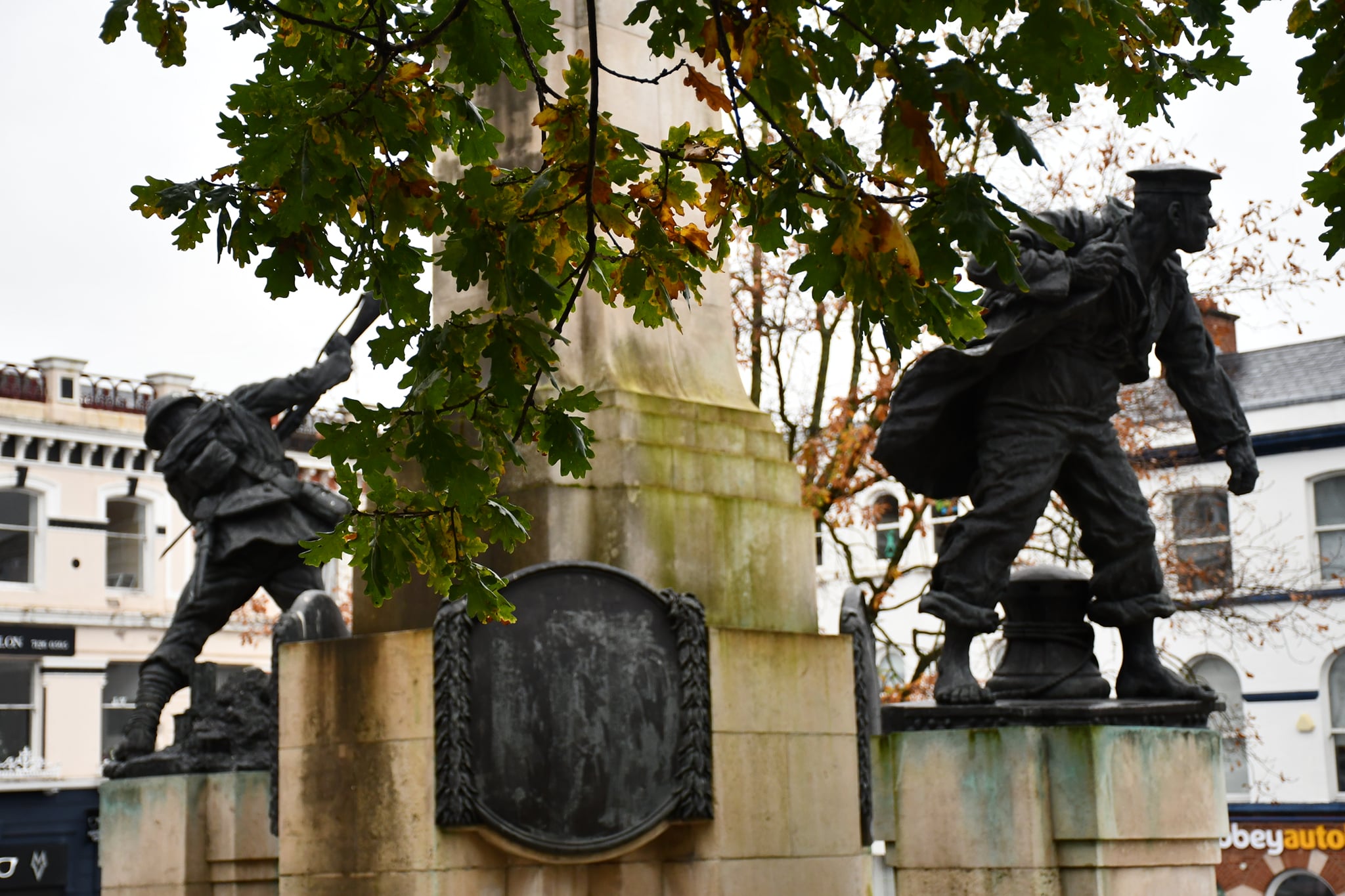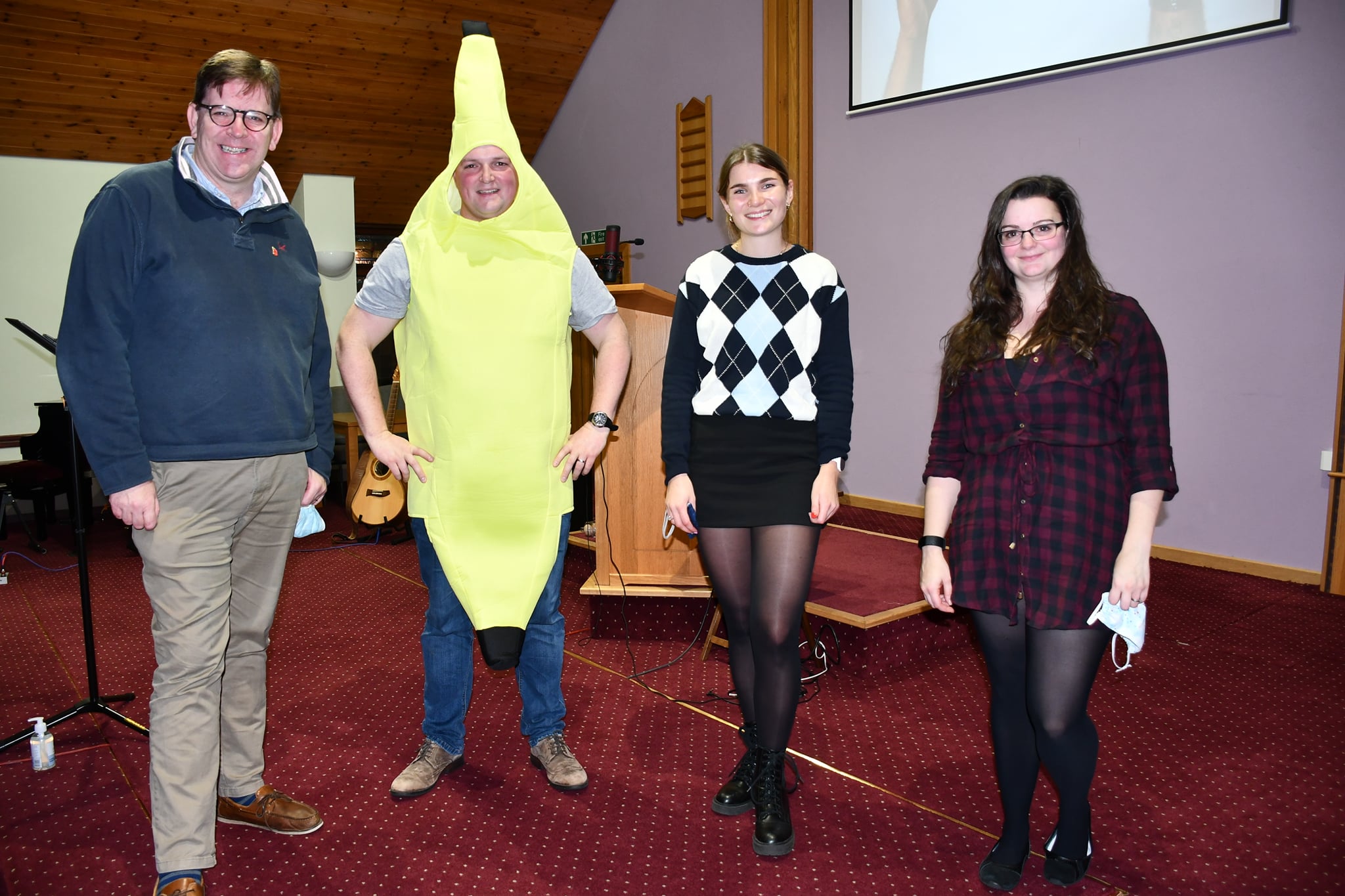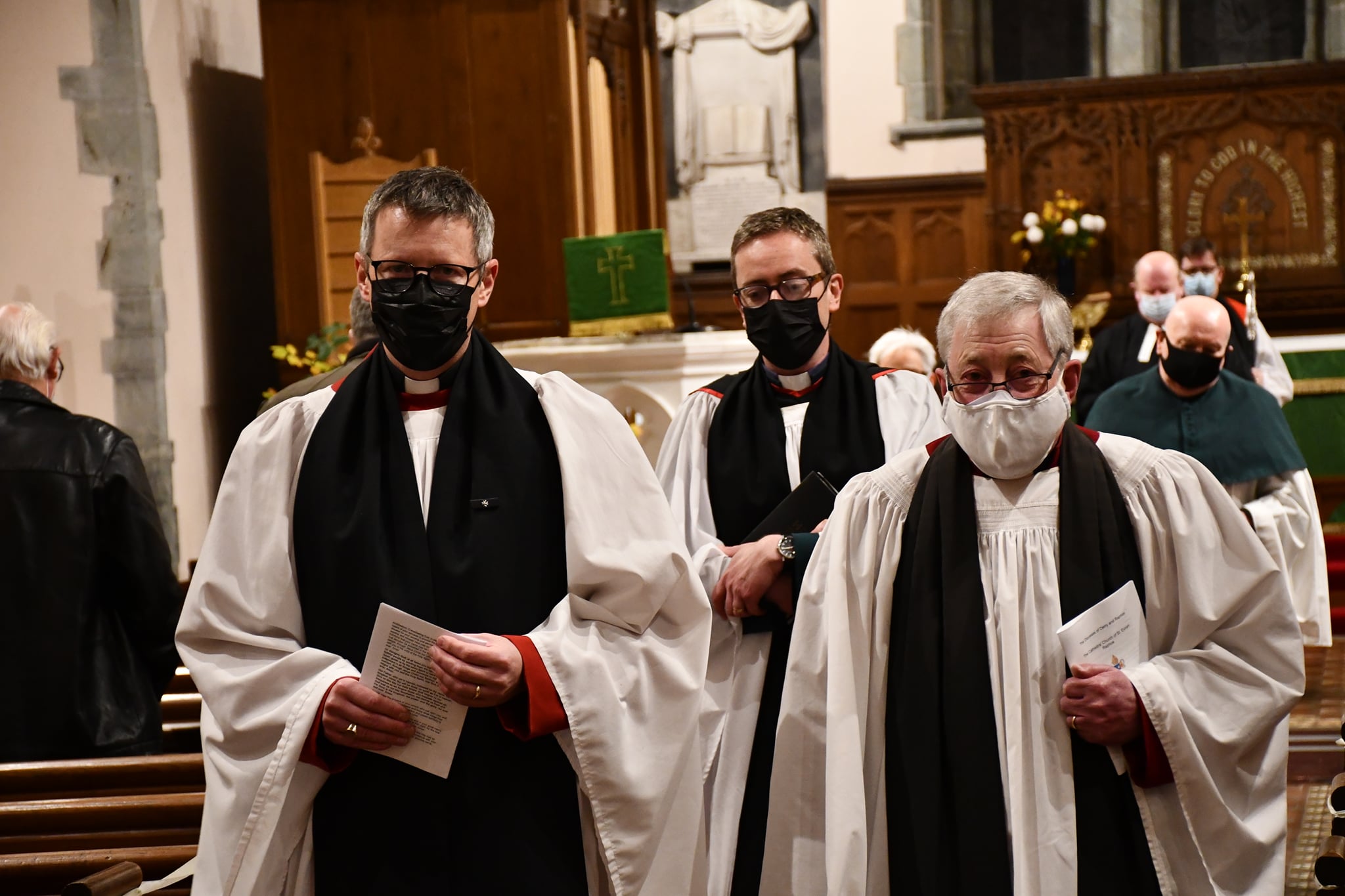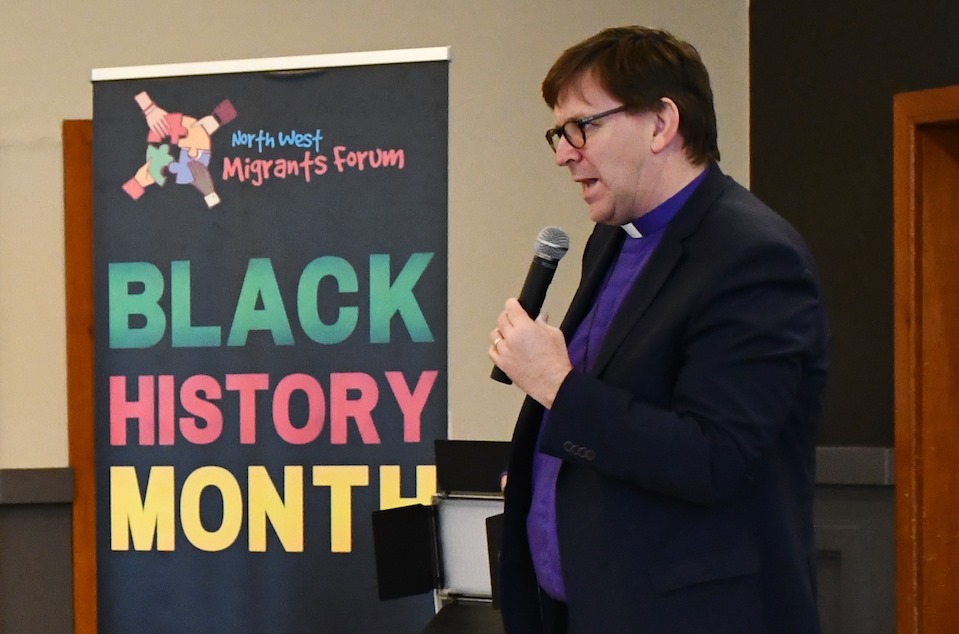Members of Derry and Raphoe Mothers’ Union heard graphic accounts illustrating the extent and impact of domestic abuse when they attended a special ‘Global Day Service’ in St Columb’s Cathedral on Saturday 27th November, 2021. The service was held in support of the organisation’s ‘No more 1-in-3’ campaign, which this year has focused on gender-based violence and sexual abuse.
Saturday’s service was led by the Diocesan MU’s outgoing chaplain, Rev Canon Katie McAteer, who was assisted by Rev Lindsey Farrell and Rev Liz Fitzgerald. They were supported by the Bishop of Derry and Raphoe, Rt Rev Andrew Forster, who addressed the congregation, and the Dean of Derry, Very Rev Raymond Stewart, who symbolically blessed a basket of items for the domestic abuse services.
Canon McAteer said those gathered in the Cathedral were raising their voices “on behalf of the voiceless to say, ‘No more “1-in-3”’. We cry out to our loving, righteous God for an end to the devastating statistic that one in three women globally will experience domestic abuse in their lifetime.”
There was a poignant demonstration of solidarity with victims during a three-minute silence which was observed simultaneously in many countries. The local women sat in socially-distanced groups of three, in which the middle women covered their heads with purple scarves; these were removed as the silence ended, signifying their wish for an end to the ‘1-in-3’.
Among those present at Saturday’s service were the Queen’s Lord Lieutenant for the City of Londonderry, Dr Angela Garvey, and the Mayor of Derry City and Strabane District Council, Alderman Graham Warke. The service was addressed by women from three local organisations which help domestic abuse victims: Edel Fox from Omagh Women’s Aid; Mary McKenna from Donegal Domestic Violence Services; and Marie Brown, from Foyle Women’s Aid.
Ms Fox talked about the impact the pandemic had had on victims, and the challenges it had posed for groups like hers which sought to help victims. She said that every 17 minutes, on average, the PSNI received a phone call from someone needing help because of domestic violence.
Mary McKenna revealed that in the last year, the Donegal Domestic Violence Service had worked with women from Poland, Slovakia, Moldova, Morocco, Afghanistan, Venezuela, India, Nigeria, the Philippines, South Africa, Romania, Brazil, Egypt, Sudan and Syria. “The issues all of these women will tell us about is the cultural acceptance of abuse towards women in their community.” She said the biggest fear they had was being threatened with being returned to their country of origin without their children. “For any woman, the thought of losing their children is horrific and this is what keeps many of these women where they are.”
Marie Brown, of Foyle Women’s Aid, revealed that year on year in Northern Ireland, the incidence of domestic violence had increased, and was now at “epidemic levels”. Seventy percent of the victims were female, she said, and during lockdown the number of women Foyle Women’s Aid dealt with rose by thirty per cent. Ms Brown said that eight women had lost their lives [to domestic violence] during lockdown, and another two had died since lockdown ended, “so the situation is pretty stark”.
Bishop Andrew thanked Mothers’ Union for organising Saturday’s service. “I sat at my seat in the Cathedral and whenever we turned for the three minutes of silence, and to look down the Cathedral and to see those heads covered, I found it deeply moving but also deeply distressing, distressing to see the proportion – so many people – affected by this terrible evil, and it is an evil.”
The Bishop thanked the Mothers’ Union and its Diocesan President Jacqui Armstrong for raising awareness of domestic violence, but he said that all of us – male and female – needed to “own this” and share this message. “As a man,” he said, “we must carry this message beyond these walls, that we must be the people who call out domestic violence, who challenge domestic violence, who raise awareness of domestic violence.” He said the message shouldn’t be left solely in the hands of women; men also had to be “the messengers of the wilderness and the pain that so many live with because of gender-based violence”.
MU’s Diocesan President, Ms Armstrong, said more had to be done to get to the root cause of gender-based violence. “We as a society – and it’s not just Church it’s all our communities, between our schools, the GAA, hockey clubs, Girls Brigade, Girl Guides, Boy Scouts – all of us need to work together in the North and South of Ireland, with government help, to get rid of the myths about domestic abuse and get down to the grass roots and create the healthy relationships that Adel and Mary and Marie have been talking about.”
